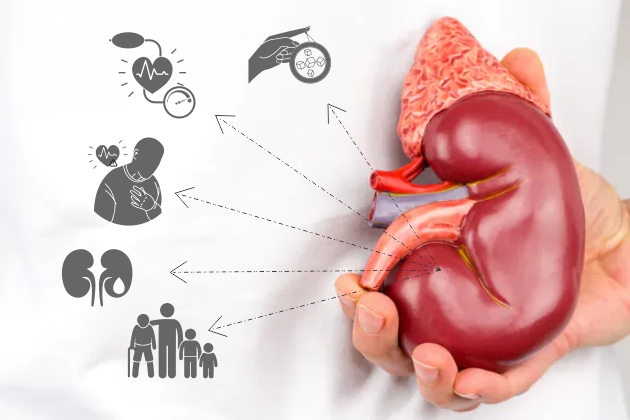Kidney Function Tests
Kidney function tests assess the effectiveness of your kidneys in filtering waste from your body. These tests typically evaluate the efficiency of waste clearance through either a blood test, a 24-hour urine collection, or both. Results are typically available on the same day or within a few days of testing.

What occurs during a kidney blood test?
During a kidney blood test, you visit your healthcare provider’s office or a laboratory to provide a blood sample. A technician employs a small needle and test tube to draw blood for analysis.
What do kidney function tests entail?
Kidney function assessments involve either urine or blood examinations to determine the effectiveness of your kidneys. Primarily, these assessments gauge glomerular filtration rate (GFR), which indicates the kidneys’ ability to expel waste from your body.
What are kidney function tests about?
Kidney function evaluations include either urine or blood analyses to ascertain the efficiency of your kidneys. Mainly, these evaluations measure glomerular filtration rate (GFR), indicating the kidneys’ capacity to eliminate waste from your system.
Why would I require a kidney function assessment?
Certain health conditions, like diabetes or hypertension (high blood pressure), impact kidney functionality. If you’re diagnosed with any of these conditions, your healthcare practitioner might utilize kidney function evaluations to monitor their progression.

You might also necessitate a kidney function test if you exhibit symptoms suggestive of potential kidney issues. These symptoms could comprise:
- Presence of blood in urine (hematuria).
- Experiencing painful urination (dysuria).
- Frequent urge to urinate.
- Difficulties initiating urination.
What types of kidney function assessments are there?
Your healthcare practitioner might prescribe one or several different varieties of kidney function tests. These could include blood tests for kidney function, such as:
- Blood urea nitrogen (BUN) assay, which measures the nitrogen levels (derived from protein breakdown) in your bloodstream.
- Estimated glomerular filtration rate (eGFR), which estimates filtration rates based on your protein levels, age, gender, size, and ethnicity.
- Serum creatinine analysis, which detects the accumulation of creatinine, a waste product resulting from muscle tissue breakdown.
- Your healthcare provider might also utilize 24-hour urine tests, which may encompass:
- Microalbuminuria examination, searches for a specific protein known as albumin.
- Urinalysis, assesses your urine for the presence of blood, proteins, and overall function.

